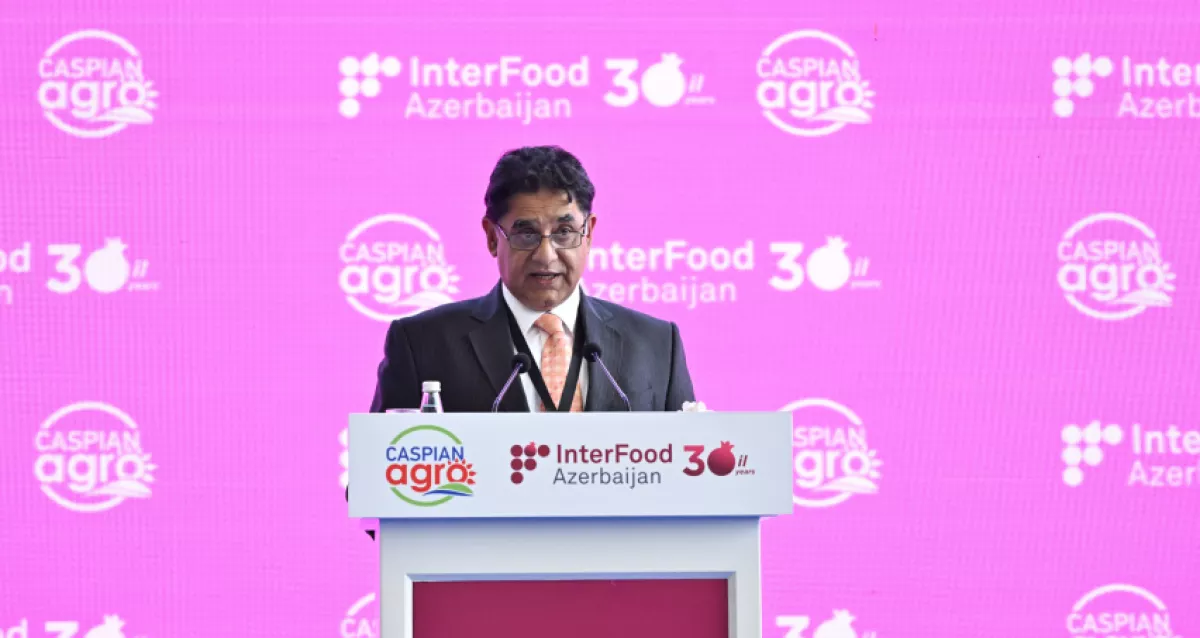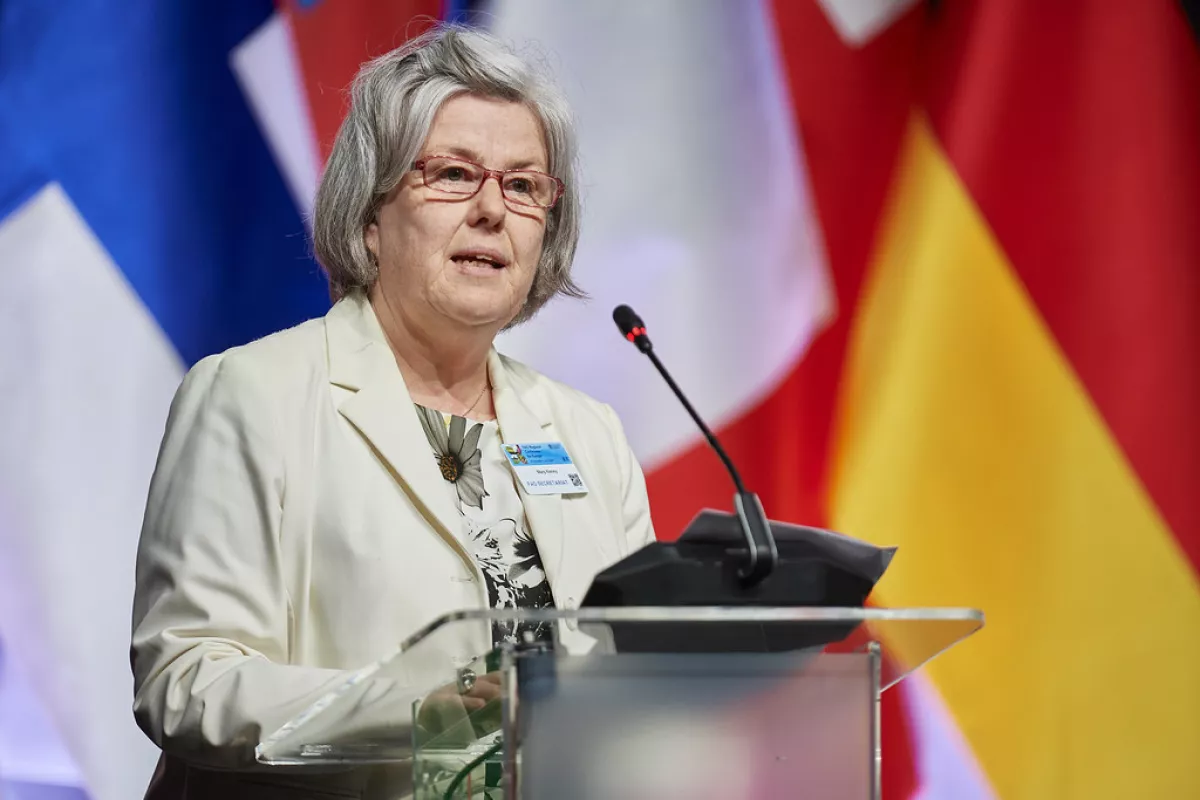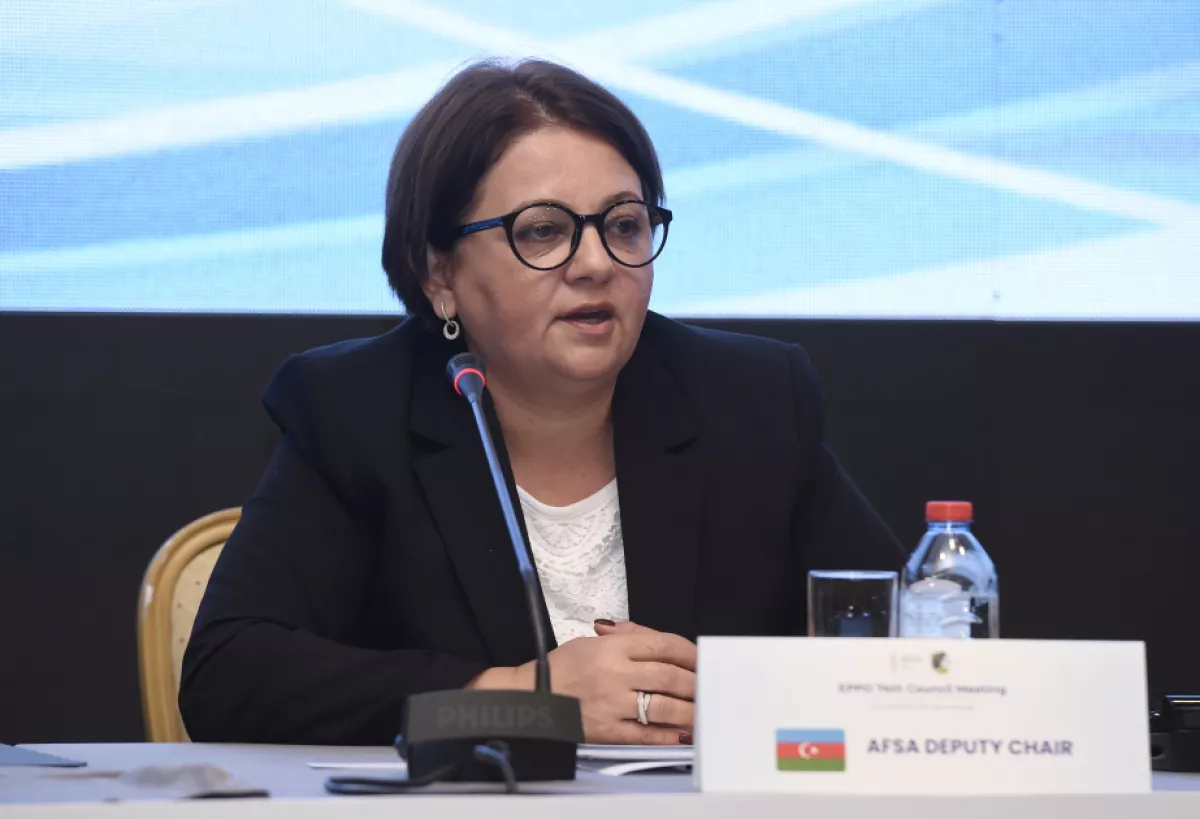Food security out of risk zone Global situation and Azerbaijan’s experience
Every year on June 7, World Food Safety Day is marked by the initiative of the Food and Agriculture Organisation of the United Nations (FAO). The relevance of this issue is hard to overestimate: according to FAO data, around 600 million people worldwide suffer from foodborne illnesses or infections transmitted through food each year. Moreover, the consumption of unsafe or contaminated food results in approximately 420,000 deaths annually.
In recent years, Azerbaijan has made tangible progress by strengthening its legislative framework and administrative practices in the field of food safety. These achievements and remaining challenges were the focus of discussions at the international conference “World Food Safety Day: Science in Action,” which opened on June 4 in Baku.
According to FAO estimates, one of the key United Nations Sustainable Development Goals (SDGs) is to ensure safe agricultural production, as well as the development of food processing and manufacturing that complies with international quality standards and sanitary regulations.
The UN's specialised agency believes that establishing a full-cycle system of safe food production in countries around the world contributes to national economic growth, international trade, and tourism. It also strengthens food security and the reliability of the food industry—serving as a crucial factor in the implementation of the SDGs.
“Food safety is not just a technical issue. It is a matter of public trust, national welfare, affecting the health of our citizens, economic development, and the sustainability of food systems,” stated FAO Representative in Azerbaijan, Nasar Hayat, at the conference in Baku.
“The Ministry of Agriculture, Food Safety Agency, Azerbaijan Food Safety Institute, and universities are our key partners. Azerbaijan's local institutions have demonstrated true leadership in building a food safety system that takes into account modern risks and is internationally connected.”

According to FAO experts, in recent years, the field of food security has faced serious challenges that have heightened risks for consumers. Amid a growing number of armed conflicts and climate shocks, hundreds of millions of people around the world suffer from hunger, while billions cannot afford healthy and safe food.
At the same time, in the world’s poorest countries, due to weak sanitary and food safety controls, it is not uncommon for agricultural raw materials to exceed permissible levels of nitrogen-based fertilisers and pesticides. Expired food products and items containing hazardous additives often find their way into the markets of developing countries.
In the context of globalisation and rapid urban population growth, the demand for inexpensive food is increasing—frequently resulting in a greater supply of unsafe products. In today’s interconnected world, small, local incidents can quickly escalate into large-scale international emergencies, often leading to outbreaks of foodborne diseases, the spread of zoonotic infections, and other serious health threats.
The rising costs of transportation and agrotechnical inputs, along with the increasing complexity of global food supply chains, are making effective worldwide oversight of food production systems more difficult. In an effort to cut production expenses, many producers are “optimising” crop and livestock sectors by maximising the use of fertilisers and pesticides, introducing genetically modified organisms (GMOs) without sufficient oversight, and—at the processing stage—injecting food with chemical additives and substitutes for natural ingredients. This trend is creating new threats to food safety.
“Approximately 40% of agricultural crops worldwide are lost each year due to pests and diseases. Pesticides and other integrated pest management tools in crop production play an important role, but improper use can lead to dangerously high levels of harmful substances in food,” noted Mary Kenny, a specialist from the FAO Regional Office for Europe and Central Asia, in a video address to participants of the Baku conference.

Until recently, Azerbaijan faced many of the negative challenges mentioned above. However, in recent years, extensive legislative and administrative efforts have been undertaken to strengthen quality control over domestically produced and imported food. These efforts involved the Ministry of Agriculture, the State Tax Service, the State Agency for Antimonopoly Control and Consumer Market Supervision, the structures of the Food Safety Agency (AFSA), as well as sanitary and epidemiological services.
In particular, oversight of agricultural, processing, and food enterprises has been significantly reinforced. Additionally, by cracking down on “shadow” schemes, most underground workshops producing hazardous counterfeit food and alcoholic products have been shut down.
In December of last year, the Azerbaijani parliament adopted a series of regulatory acts and amendments to the Criminal Code and the Code of Administrative Offenses, significantly toughening penalties for the production and sale of food products that pose a danger to human health and life.
A crucial milestone in these efforts was the adoption, in early 2023, of the Law “On Food Safety.” This legislation incorporates advanced international standards and mechanisms for food inspection systems, registration, and approval of entities and facilities involved in the food supply chain, playing an important role in protecting the lives and health of citizens in Azerbaijan.
Notably, since May 2023, the country has implemented registration of imported genetically modified organisms (GMO) products and feeds, as well as similar products produced and processed domestically. Today, the import, production, and circulation of unregistered GMO products are completely banned.
Meanwhile, the Food Safety Agency (AFSA) has recently begun efforts to establish animal disease-free zones in the East Zangezur and Karabakh economic regions (covering the Zangilan, Jabrayil, and Gubadli districts fully, and the Fuzuli, Khojavand, and Lachin districts partially), as well as in the Nakhchivan Autonomous Republic. In these disease-free zones, particular attention will be paid to foot-and-mouth disease. The initial phase will include epizootic, diagnostic, logistical, and other measures aimed at obtaining the international status of “disease-free with vaccination.”
In 2024, Azerbaijan was recognised by the World Organisation for Animal Health (WOAH) as free from bovine plague and highly pathogenic avian influenza, maintaining its previously achieved status as free from African horse sickness and African swine fever.
“Safe food products are one of the key conditions for sustaining life and preserving human health. Vulnerable and marginalised groups—such as women affected by conflicts, migrants, and children under five years old—are especially at risk. Children under five account for 40% of all illnesses caused by unsafe food products, with around 125,000 children dying worldwide each year for this reason,” stated Zakia Mustafayeva, Deputy Chairperson of the AFSA, during the forum.
According to her, disciplines such as microbiology, biotechnology, chemistry, food engineering, and other related fields play a crucial and multifaceted role in ensuring food security. “Scientific achievements and technological innovations in this area allow risks to be minimised at every stage—from production and storage to transportation and consumption of food products.”
The deputy chairperson emphasised the strategic importance of the “One Health” concept in planning preventive measures at the national level—a holistic approach to food safety that ensures protection of human health and the resilience of the entire ecosystem.

Thus, the reforms of recent years, along with the implementation of advanced standards and international best practices, have enabled Azerbaijan’s processing and food enterprises to align their operations with global requirements, improving the safety and quality of their products.
These developments have created favourable opportunities for expanding exports of Azerbaijani agro-industrial products, including those classified as high-risk. For example, thanks to strengthened oversight by the AFSA, the European Union granted approval for the first time last year to export fish roe (sturgeon species) cultivated through aquaculture.
An agreement has also been reached with the EU on the export of hides and wool from agricultural animals, alongside permission for simplified hazelnut exports. Additionally, the export of local horses to Kazakhstan has resumed, while permissions have been obtained to export table eggs to Russia and the United States, as well as poultry meat and other poultry products to China.








